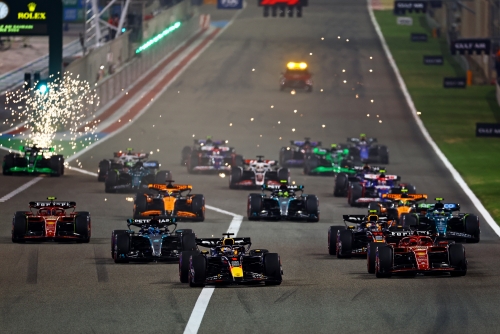Bahrain witnesses eco-friendly F1
By KOTA SRIRAJ
The much-anticipated F1 Grand Prix kicked off in Bahrain with the riveting race held on March 2. The excited Formula 1 fans also celebrated the twentieth anniversary of the Bahrain International Circuit (BIC) at Sakhir. The popularity of F1 has increased manifold through the years and this year’s season too has had fans waiting with bated breath. But the carbon footprint of F1 has been a concerning aspect for some time and this was highlighted in a report of F1’s environmental impact. The report revealed the championship was responsible for generating 256,000 tonnes of CO2 emissions during the 2019 season.
Given this situation, the F1 sustainability strategy was announced which aims at achieving Net Zero carbon emissions by 2030 with the help of all stakeholders such as the manufacturers, promoters and partners.
To achieve this F1 has undergone a cultural change by making Net Zero Carbon Emissions a priority. Whether it is the reduction of single use plastics inside the paddock or promoting reusable water bottles for the spectators at the venues, the F1 events are firmly moving towards ensuring environmental accountability.
These initiatives are already showing heartening results. For instance, the 2020 Australian Grand Prix, saw over 1.5 tonnes of unused food being donated to 17 charities in the state of Victoria. This prevented food wastage and reduced carbon footprint.
These environmental conservation efforts of course could not have materialised if not for the complimenting efforts of the Race Circuits. Bahrain led the sustainability efforts in an exemplary manner by making the Bahrain International Circuit at Sakhir 100% renewable energy powered.
Similar efforts were made at Paul Ricard and the Circuit Gilles Villeneuve, where Solar panels that create enough year-round energy to offset the entire Grand Prix have been installed. The participating teams too have turned over a green leaf by making are their offices and facilities more sustainable.
Now F1’s offices are using 100% renewable energy, while F1’s broadcast operations are working to source alternative biofuels to run in their power generators. The spectators too are learning to pitch in with their contributions towards a greener F1.
Zandvoort is a great example, with 25,000 fans ditching their cars and using pushbikes to get to the track last year, while 40,000 used public transport or walked to the venue. The F1 cars too are being driven towards a cleaner tomorrow. The current engines are already the most efficient in the world, delivering more power using less fuel than any other road car.
But from 2026, they will run on 100% sustainable fuels. When compared to fossil fuels, these new age fuels will provide an 85-96% reduction in CO2 emissions. This combined with car components made from recycled carbon fibre derived municipal waste or non-food biomass, will help achieve major reduction in greenhouse gases emissions.
This year too Bahrain has successfully conducted an environmentally friendly Grand Prix. The hard-work and commitment of the entire team at BIC, Sakhir has proved that sports can be exciting and eco-friendly too.
(The views and opinions expressed in this article are those of the author and do not necessarily reflect the official policy or position of the Daily Tribune)
Related Posts


